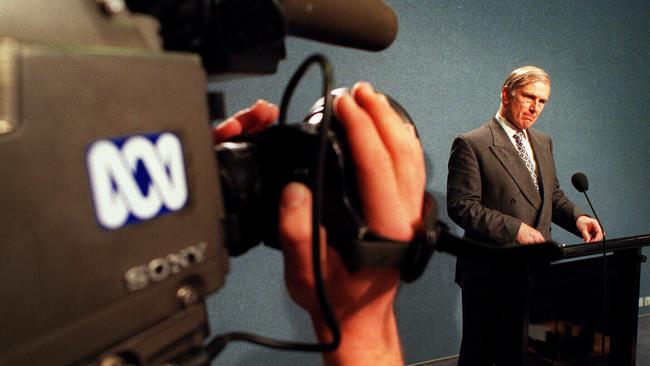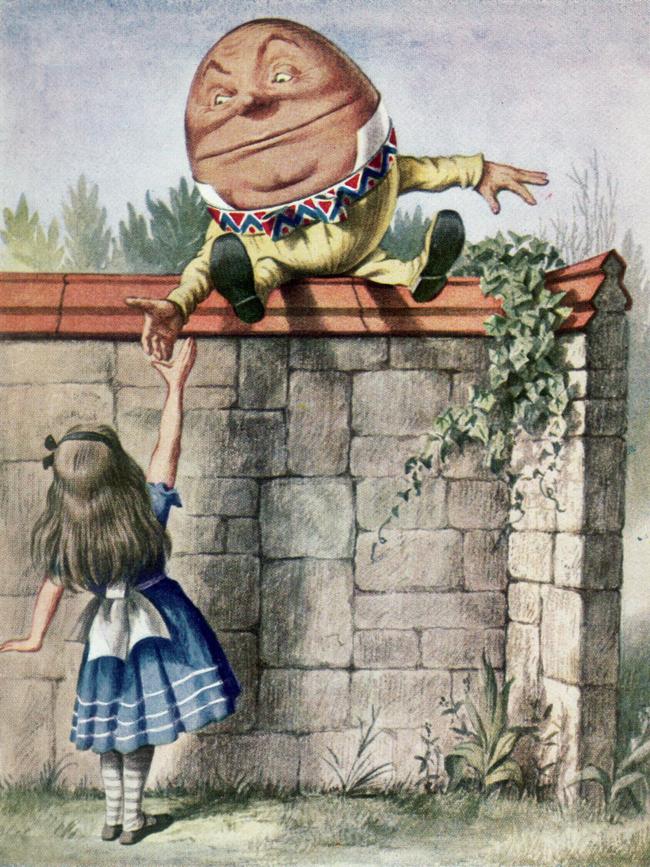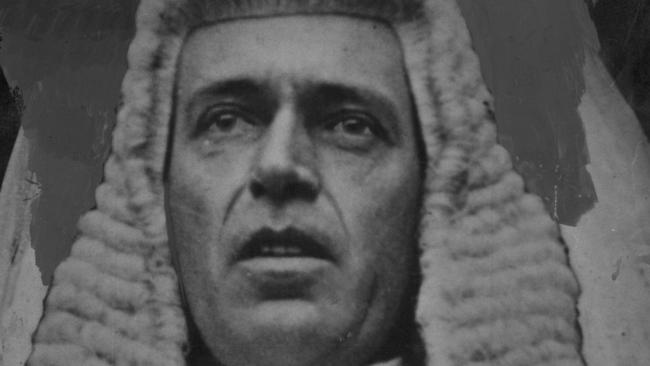One-eyed ABC loses sight of wider, more diverse picture of Australia
ABC more concerned with discrimination, social disadvantage than it is about economics of how to afford remedies.

A major concern, for many observers during my time as communications minister, was, and still is, the ABC’s unrelenting left-wing disposition, more concerned with social issues of poverty, discrimination and social disadvantage but never the economics of how to afford its “obvious” remedies. It took some four years of badgering before it agreed to put on even one economics or business program.
This is much more than a party-political concern. According to Paul Keating “the ABC is letting Australia down — too many tragic reports of no broader consequence, too many hard luck stories”.
While 7.30 is a “news magazine instead of a hard news-breaking operation”. While the ABC’s preferred priorities were much more in line with ALP values than those of the Coalition, the ALP in government felt the same frustrations. Indeed, shortly after coming to office, I received a call from a former senior Labor cabinet minister: “Mate, on the ABC, we’re right with you. Don’t expect us to say anything in public, for obvious reasons, but go your hardest.”
READ MORE: ABC news should stand on its own | Extolling of Dark Emu ignores the doubt about its historical accuracy| ABC stands firm on axing Olympics radio coverage | ABC green light to air Tracy Spicer’s controversial #MeToo documentary | Media freedom views obscured by political leanings
What most people want is for the ABC to uphold the highest standards of public broadcasting, with accurate, fact-based and comprehensive coverage of the news.
It is fatuous and disingenuous for the ABC to respond to criticism of specific programs or items by saying that Australians overwhelmingly approve of the organisation. This deliberately conflates the preponderance of its coverage, rarely contentious, albeit of varying quality, with its coverage of politics (which it sanitises by calling it news and current affairs), which is often highly contentious. If these two binary fields of endeavour were to be held in separate entities, the response might be quite different.
Another much favoured line of defence is: “If both sides of politics criticise us, we must be doing something right.” This juvenile non sequitur ignores the fact the ABC critique is always from the left of both major parties. While the ABC should be free to defend itself, there is no good reason a broadbased objective body cannot be put in place to assess and adjudicate on non-frivolous complaints.
In a realm as fraught as politics there will always be stark differences of opinion, real or contrived. But this is no reason a reputable body of independently appointed citizens could not come up with at least a majority verdict that all sides of politics can accept.
The ABC is required to develop a code of practice, which it must then notify to the Australian Communications and Media Authority and comply with the regulator’s directions.
Assuming that the ACMA has the tools at its disposal, the real question becomes one of enforcement. Raps over the knuckles are easily absorbed and quietly ignored. Financial penalties would have more impact; they should be considered.
What must be understood about dealing with the ABC is that it is intensely political: everything is contestable, every employee seems to have a strong view. The problem is that most have a conscience that tells them there is so much wrong with the world that is almost beyond repair. As they give little attention to economics and finance, pursuit of good government or the priorities of middle Australia, they swiftly default to moral outrage; a much easier line to pursue and easily lapped up by the indolent couch lizard.
In arithmetic you are right or wrong, but with social justice the campaign never ends, so everyone’s a winner except, as it happens, the actual victims.
But mostly journalists do not have time to ruminate on the real-life consequences of social or economic deprivation because the journalistic imperative requires moving on quickly to the next moral outrage. Most ABC employees have an almost uniform world view, according to which they seek to right every wrong, real or imagined. They like to pretend they need to “hold governments to account”, but this almost always means an obsession with finding endless perceived shortcomings, notwithstanding that thinking listeners and viewers, for whom the ABC likes to think it caters, are also seeking dispassionate analysis.
The ABC also seems to think its job is to bring governments down, always looking for a political barb, instead of analysing policy critically (in the purist sense), sometimes even agreeing or at least conceding the complexity of an issue.
Whenever the subject of ABC bias arises, everyone defaults to the charter. But the charter is so vague and open-ended as to be virtually meaningless. The ABC seems to take its cue from what Humpty Dumpty famously said to Alice: “When I use a word, it means just what I choose it to mean — neither more nor less.” The act requires the gathering and presentation of news and information not only with impartiality but also with a diversity of perspectives so that, across time, no significant strand of thought or belief within the community is knowingly excluded or disproportionately represented.

On its face this means the ABC is required to present both sides of an argument. As Australia’s most eminent chief justice, Sir Owen Dixon, once said: “A story is good until another is told.” In politics there is always another story, valid or otherwise. This is a precept the ABC has yet to learn.
In any case, this formulation once again provides a get-out clause wide enough for the mythical coach and horses to pass through. When the ABC’s former chairman and managing director David Hill was chastised about an obviously one-sided piece, he rarely sought to defend it directly. He relied instead on the weak defence that no doubt it would be corrected “over time”. That time never comes, as the ABC is, indeed, notorious for presenting only one side of the picture on many big issues, whether it be climate change, immigration, asylum-seekers, gay marriage, the Palestinians or the unspeakable Donald Trump.
The most egregious omission in the ABC charter is that there are no specific guidelines for the most contentious aspects of its activities.
The Australian Broadcasting Corporation Act is quite explicit: the ABC has a statutory duty to gather and present news and information that is accurate “according to the recognised standards of objective journalism”.
Unfortunately that crucial last qualifier is simply there to give the ABC an escape from any suggestions of inaccuracy. Even the reference to “objective” is more honoured in the breach than the observance.

It is also required to act with impartiality, which certainly, as far as the ABC is concerned, is open to interpretation and, again, who decides?
Effectively, this means it is up to reporters to decide whether the subject matter, together with the reporter’s manner and method of questioning, is impartial by their own standards — a purely subjective test, whereas any reader of the charter is entitled to assume the test will be objective: “What would any fair-minded reasonable person think?”
ABC top brass are happy to disparage the concept of equal time, but history shows they do not hesitate to resort to this subterfuge when its suits their efforts to counter allegations of bias.
During one election campaign in which I was involved, a Liberal interviewee was met with frequent, sceptical interjections such as: “Surely you can’t believe that?” The corresponding interview with a Labor politician was more along the lines of: “Would you like to say any more about that?”
This illustrates the typical dividing line between a hard and a soft interview, which can graphically demonstrate an interviewer’s leanings, but is never acknowledged by the ABC and its defenders. Instead, in this instance, the ABC response to criticism was to commission a report from a carefully chosen academic content to show that each side had received equal time.
This is not only a matter of partisan politics; have you ever heard an ABC interviewer stoutly cross-examine a refugee lawyer or put a climate change advocate through their paces?
A furious debate has been going on for many years over this latter vexed issue and there are many well-qualified scientists who frequently question key aspects of ABC reports. The ABC is happy to console itself with the cliche that “the science is settled”, when it never is — even Albert Einstein had trouble accepting the then revolutionary new science of quantum mechanics because it didn’t accord with Newton’s “settled view” of physics.
Bias can start well before an item goes to air, when decisions are made about who to interview, what line to take, the blurring of the once black line between news and opinion. Not only should the interviewer be balanced; if a panel is loaded towards one side of a hot debate it will inevitably be a slanted outcome.
The ABC website dismisses the validity of any commitments to “fairness and balance” that, it claims, have never been recognised as standards of objective journalism. About the only obligation it seems prepared to accept is “accurate and impartial” but, again, its insistence that it should be the sole judge renders this effectively meaningless as a community standard.
Q&A is a hot bed of the narrow leftist thinking of inner-city elites, usually led by a compere who proudly wears his dispositions on his sleeve and never lets a perceived right-wing view go uncontested. Nearly all of its subject matter being alien to middle Australia, the ABC likes to pretend the hand-picked audience is politically representative. But you have to watch for only five minutes to know it’s not; even the loaded youth demographic gives it away. The selection of questions is not spontaneous and more often than not focused on the ABC’s pet subjects, while the panel invariably includes a token “conservative” often subject to audience booing or ridicule. It is increasingly obvious that the ABC loves diversity on all social fronts but never on the political.
One solution that might help to break down this fortress mentality would be geographic staff dispersal along the lines of the BBC’s major relocation from London to Manchester a few years ago. Inner-Sydney values are quite different to those elsewhere in the country, especially in non-metropolitan areas. Currently the ABC has more staff in NSW than in the rest of Australia combined, with 53 per cent of the total workforce, up more than 5 per cent on 10 years ago. Its centralised news model means no production now occurs in Adelaide or Hobart. The ABC may be more inner-Sydney-centric than ever, but does it care?
The real problem remains the world view, unleavened by any right-of-centre commentators — an offering that has been accurately characterised as “influenced by the narrow middle-class values of the Australian secular left”. It could be added: “and a determination never to be caught out acknowledging the legitimacy of the largely conservative views of middle Australia”, which it seems to equate to the lumpen proletariat of yesteryear. However, there are some greenshoots emerging. The arrival of Ita Buttrose, and her positive, measured and constructive manner as the new chair, offers hope for gradual cultural change.
This is an edited extract from Richard Alston’s memoir, More to Life than Politics? published by Connor Court on Thursday. He was communications minister in the Howard government from 1996 to 2003.



To join the conversation, please log in. Don't have an account? Register
Join the conversation, you are commenting as Logout